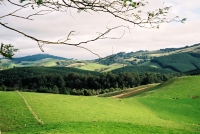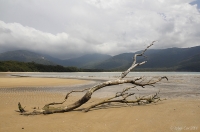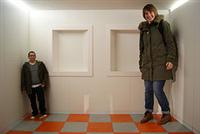City guides


Phillip Island and Gippsland Travel Guide
Gippsland is a large, rural region of Victoria, between Melbourne and the border with New South Wales. The region is scenically splendid and a popular getaway from the city of Melbourne, with lakes, forests, dramatic coastline and historic towns to lure travellers. Gippsland is the place to head for an experience of Victoria's unspoiled wilderness areas, perfect for a peaceful and invigorating break from the urban attractions of cosmopolitan Melbourne. It is also gourmet country, filled with cheese-makers, wineries, fruit farms and markets. There are more than 100 vineyards and about 40 wineries in the region, providing a wealth of fine wine to sample in-between adventurous activities.
Phillip Island, just offshore, offers the chance to experience being up close and personal with a variety of wildlife, including fairy penguins, fur seals and koala bears. The island also has several outstanding dive sites, and is surrounded by some of the best surfing and swimming beaches in Victoria.
Visitors to Gippsland stay in the small alpine towns and seaside villages of the region. Popular travel bases include Walhalla, Port Albert, Mt Baw Baw, Paynesville, Metung and Mallacoota.
Things to do in Phillip Island and Gippsland
Gippsland's main attractions are natural, with splendid national parks and unspoilt wilderness areas including Agnes Falls Scenic Reserve, Wilson's Promontory National Park, Tarra-Bulga National Park, Croajingolong National Park, Baw Baw National Park, Snowy River National Park, and many, many more. These pristine areas provide an impressive variety of landscapes, including mountains, forests and some beautiful stretches of coastline, and there are many rewarding walking trails for keen hikers. The region also boasts some marine reserves and pretty islands, as well as some great scuba diving sites.
Other popular attractions in Gippsland include Walhalla, a historic gold mining town where visitors can take underground tours of the mines; the magnificent Buchan Caves, located in the town of the same name; Port Albert, Gippsland's oldest port; the exciting animals to be found on Phillip Island and at a number of other animal sanctuaries in the region; and the weird and wonderful A Maze 'N Things theme park, which provides a fun break from outdoor activities.

Agnes Falls Scenic Reserve
Agnes Falls, at 194ft (59m), are the highest single span waterfalls in Victoria. The falls are situated 100 miles (160km) southeast of Melbourne, near Toora on the South Gippsland Highway. The Agnes Falls Scenic Reserve protects a small remnant of the forests that once covered the Stzrelecki Ranges. The canopy of eucalyptus provides food and nesting areas for a variety of birds, including the laughing Kookaburra and a range of honeyeaters. All plants and animals in the reserve are protected, and camping is not permitted; however, taking along a picnic is a wonderful idea as there is a picturesque picnic site on the banks of the Agnes River. There are designated walking trails that allow visitors to take in the beautiful landscapes and the best of the falls.

Phillip Island Circuit
At Cowes, racing enthusiasts enjoy visiting the Phillip Island Circuit. Originally opened in 1956, it annually hosts two international motorcycle events, the Superbike World Championship and the Qantas Australian Motorcycle Grand Prix.
The Circuit has a Visitor Centre, which includes informative displays on the history of motor sport on Phillip Island, a circuit viewing area, a cafe, water gardens and wildlife enclosures. Guided walking tours take visitors to off-limits areas around the track, including the winner's podium, the pit lane and the control tower. Visitors may also experience an adrenaline-pumping triple lap ride with an experienced racing driver in the HSV Hot Laps.

Wilsons Promontory National Park
The Promontory (known as 'the Prom') once linked Tasmania to the mainland. It has been a reserved area since 1898, with its 80 miles (130km) of coastline framed by vast granite masses, mountains, forests and fern gullies. The focus for tourism and recreation is at Tidal River, about 19 miles (30km) inside the park boundary, where visitors enjoy the sandy beach at Norman Bay, and Squeaky Beach with its pure white quartz sand.
It is possible to walk up Mt Oberon or take 'the Prom Lighthouse Trek' with a ranger along the southern section of the park. The north of the park, including Barry Creek, is a wilderness area that remains remarkably untouched by humankind and can only be accessed on foot. Hikers wanting a true wilderness experience can stay overnight in this area, but there are no amenities and everything needed must be carried in.

A Maze 'N Things
As suggested by the pun in its name, A Maze 'N Things is a theme park that specialises in mazes, tricks, puzzles, optical illusions and other ludic delights. The great strength of the establishment is that its exhibitions are aimed primarily at adults, and are of a high-enough quality to provide hours of entertainment to even the most jaded of theme park patrons.
Truly discombobulating, the park's attractions are separated into four main sections: the Maze, a labyrinth of twisting, dead-ending passageways; Maxi Golf, a 19-hole putt-putt course that will bring even experienced golfers to their knees; Puzzle Island, an interactive area of challenges and illusions, including the Rotating Room and the 6.5-metre slide; and the pick of the bunch, the Illusions Rooms, where visitors will disbelieve their eyes, as they watch water flow uphill, watch themselves shrink, defy gravity, and even disappear.
A Maze 'N Things is one of those rare places where everyone in the family, from grandfather to grandson, is pretty much guaranteed to have a great time, and is a highly recommend tourist attraction for family holidaymakers in Victoria.
Australia travel info
Electricity
Electrical current is 230 volts, 50Hz. Three-pin flat blade plugs are used but are different to those in most other countries, so an adapter is normally required.
Language
English is the official language of Australia.
Money
The unit of currency is the Australian dollar (AUD), which is divided into 100 cents. Credit cards are widely accepted and ATMs are freely available throughout the country. Banks and bureaux de change exchange most foreign currencies. Banking hours are generally 9.30am to 4pm, Monday to Thursday, and 9.30am to 5pm on Friday, but some banks offer extended hours and some are open on Saturday mornings.
Tipping
Most service providers in Sydney don't expect a tip, so travellers shouldn't feel pressured into giving one. A tip of 10 percent is standard in restaurants, however, and passengers usually round up to the nearest dollar or more in taxis.
Health
A yellow fever vaccination certificate is required by travellers over one year of age arriving within six days of having stayed overnight or longer in an infected country. No other special immunisations or medications are required for most trips to Australia; however, insect repellents are strongly advised because of the risk of mosquito-borne illnesses. Another health risk is sunburn, and visitors are advised to take precautions. Medical services are excellent but can be expensive, so travellers should ensure that they have adequate insurance. Australia has a reciprocal health agreement with the United Kingdom providing for free hospital emergency medical treatment; proof of UK residence is required.
Safety
The crime rate in Australia is low; however, travellers should be aware that tourists could be targeted by petty criminals. Visitors should be vigilant about personal possessions and travel documents, particularly in popular tourist destinations such as along the Gold Coast. Tropical cyclones normally occur between November and April in some parts of Australia, particularly in Western Australia, Queensland and the Northern Territory. There is a serious risk of bush fires in summer (November to March), especially in Victoria, Tasmania, New South Wales and ACT. Also during the summer months, the shallow coastal waters of northern Australia and Queensland become infested with marine stingers, commonly known as box jellyfish, whose sting is highly dangerous and can be deadly. Visitors should pay attention to signs on beaches and follow the instructions of local lifeguards to avoid injury.
Local customs
Generally an informal attitude, in dress and behaviour, prevails in most social and business situations. Sport, particularly rugby and cricket, is almost a religion in Australia.
Doing business
Those doing business in Australia are sure to find that the friendly yet professional corporate atmosphere of the country will provide them with an exciting opportunity to develop their careers. The business culture of Australia is a bit of a hybrid breed, incorporating the trappings of British formality and conservatism, the egalitarian ethos of Scandinavian countries, and the dynamic, innovative approach to business that is generally thought of as American in origin - rounded out, of course, with typical Australian warmth and humour. The approach to management in Australia is consultative, pragmatic, and strictly non-hierarchical. Those in positions of relative power are accorded respect by virtue of their personal qualities, not simply because they happen to be the boss.
Business etiquette in Australia further reflects this egalitarian ethos. Business people should use titles initially, though they will almost certainly be told to dispense with them and refer to their colleagues by their first names. They should maintain eye contact when speaking to their associates, as this is regarded as a sign of forthrightness and trustworthiness, qualities that Australian business people tend to favour over showiness, self-aggrandisement or empty promises. Business meetings in Australia should be scheduled about a week in advance, and then confirmed a few days before they are due to take place.
Colleagues should be punctual, as lateness can be seen as a symptom of flakiness or indifference. Business meetings in Australia do not generally proceed from a set agenda. Rather, they are viewed as open forums, in which ideas are to be debated and discussed. In fact, over-preparing for a meeting can make participants seem pushy, as though they wish to bully others into adopting their opinions on the issue at hand. The dress code for business in Australia remains surprisingly traditional: dark suits and ties are the norm for men; for women, business suits, worn either with pants or a skirt. As a general rule, business people should avoid loud jewellery and accessories, as to Australian eyes they might make them seem arrogant. The official language of business in Australia is English, and business hours are generally from 8.30am (or 9am) to 5pm (or 5.30pm), Monday to Friday.
Duty free
Travellers to Australia over 18 years do not have to pay customs duty on 2.25 litres of alcohol; and 25 cigarettes or 25g of cigars or tobacco products. All tobacco products in travellers' baggage are included in this category, regardless of where they were purchased. Gifts are included in the A$900 duty-free allowance. Fresh produce and animal or plant products are prohibited.
Communications
The international dialling code for Australia is +61. Hotels, cafes and restaurants offering free WiFi are widely available; purchasing a local prepaid SIM card can be a cheaper option than paying international roaming costs, which can be quite high.
Passport & Visa
A valid passport and a visa or ETA is required for travel to Australia. An ETA is an electronically issued and verified visa, not visible in a passport. ETAs are issued to passengers travelling for touristic or business purposes. Tourist ETAs are usually valid for three months. ETAs are obtainable online at: www.eta.immi.gov.au or through most travel agents. It is highly recommended that passports are valid six months after departure from a holiday destination.
Entry requirements
US nationals must have a valid passport on arrival. A pre-obtained Electronic Travel Authority (ETA) is required for stays of up to three months.
UK nationals must have a passport valid for intended period of stay. A pre-arranged Electronic Travel Authority (ETA) is required for stays of up to three months.
Canadian nationals require a passport valid for intended period of stay. A pre-arranged Electronic Travel Authority (ETA) is required for stays of up to three months.
South African nationals must have a passport valid for at least six months after their date of departure. A visa is required.
Irish nationals must have a passport that is valid on arrival. A pre-arranged Electronic Travel Authority (ETA) is required for stays up to three months.
New Zealanders require a valid passport on entry to Australia. A Special Category Visa (SCV) is issued on arrival after completing a passenger card.
Useful contacts
Australian Tourist Commission, Sydney: +61 (0)2 9360 1111 or www.australia.com
Emergencies: 000 (112 on cellphones)Embassies / consulates in other countries
Embassy of Australia, Washington DC, United States: +1 202 797 3000.
Australian High Commission, London, United Kingdom: +44 (0)20 7379 4334.
Australian High Commission, Ottawa, Canada: +1 613 236 0841.
Australian High Commission, Pretoria, South Africa: +27 (0)12 423 6000.
Australian Embassy, Dublin, Ireland: +353 (0)1 664 5300.
Australian High Commission, Wellington, New Zealand: +64 (0)4 473 6411.
Embassies / consulates in Australia
Embassy of the United States, Canberra: +61 (0)2 6214 5600.
British High Commission, Canberra: +61 (0)2 6270 6666.
Canadian High Commission, Canberra: +61 (0)2 6270 4000.
South African High Commission, Canberra: +61 (0)2 6272 7300.
Embassy of Ireland, Canberra: +61 (0)2 6214 0000.
New Zealand High Commission, Canberra: +61 (0)2 6270 4211.


